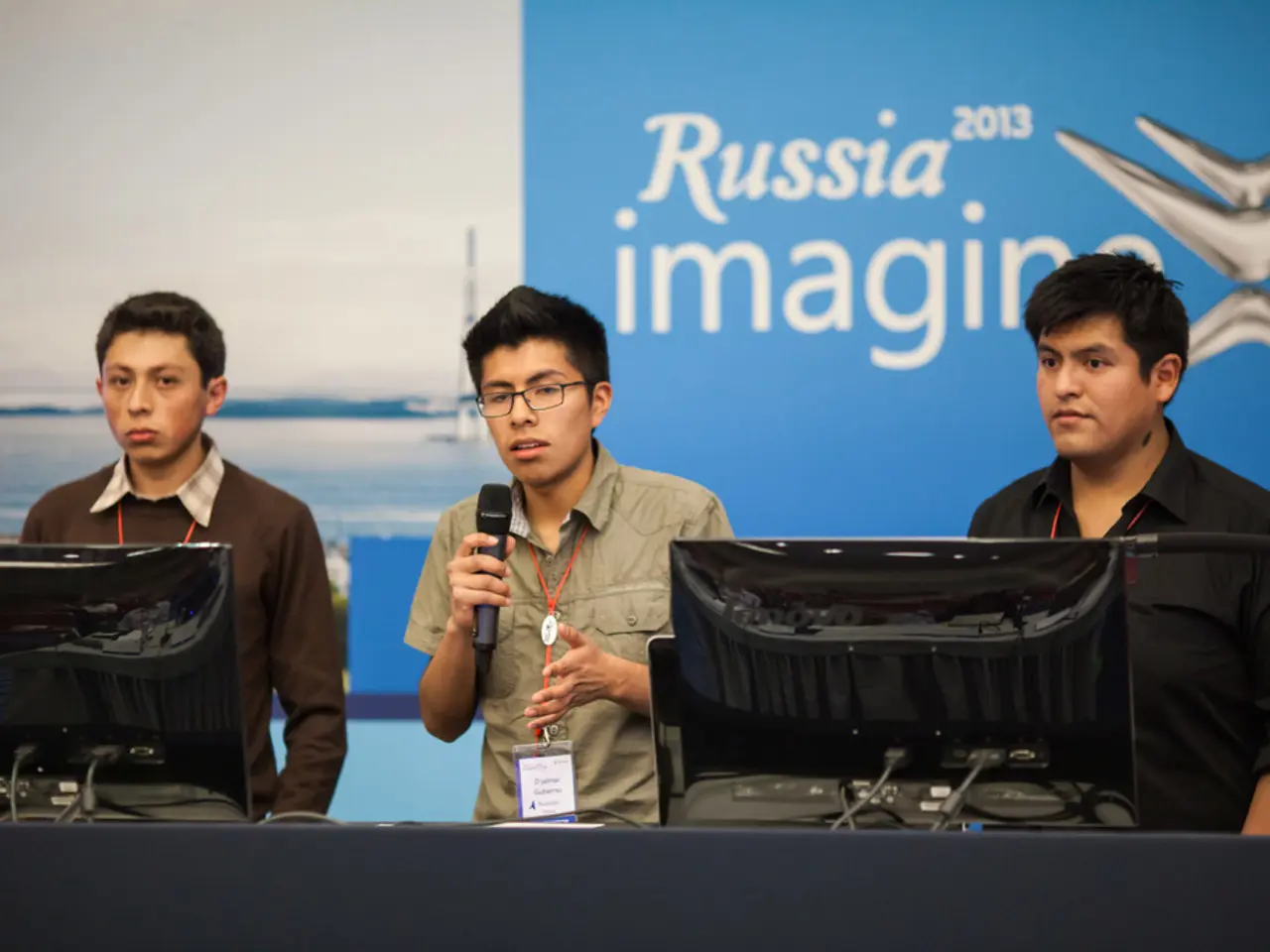Potential international sanctions by the U.S. could drive a wedge between Russia and major nations such as China and India, according to a statement from a member of LATO.
In a move aimed at isolating Russia economically, the US has announced secondary sanctions on China and India, targeting their trade with Russia, particularly concerning Russian oil imports. This decision could have far-reaching implications for the relationships among the US, China, India, Russia, and the European Union (EU).
Russia has vowed to continue its pursuit of ideological, political, and military objectives in Ukraine, disregarding the sanctions imposed. In response, the US may be forced to support Ukraine more actively and work more closely with Europe, should China continue to openly support Russia.
The US-China trade tensions could escalate further with the imposition of secondary tariffs on Chinese companies trading with Russia. This could potentially re-ignite the ongoing trade war and weaken the US economy through disrupted supply chains.
India, a major importer of Russian fossil resources and a significant US trading partner, has been hit by a 25-50% tariff on its imports of Russian oil. New Delhi regards these tariffs as unfair and unjustified, viewing them as energy security measures for its population of 1.4 billion people. This move risks a deterioration in strategic cooperation between India and the US, potentially weakening India's negotiating power vis-à-vis both China and Russia.
The US strategy also puts pressure on India to reduce ties with Moscow, causing strain in the traditionally strong India-Russia relationship. However, Russia remains an important defense and energy partner for India, and it might seek to resist US pressure to preserve its autonomy in foreign policy decisions.
China, Russia's largest trade partner, faces a complex situation. Secondary sanctions complicate China's interaction with both Russia and the US. China might face economic losses if forced to reduce energy imports from Russia but may also increase clandestine trade, which is difficult to hide given the scale.
The EU, which is also a purchaser of Russian crude, could face turmoil in global oil markets if China and India reduce Russian oil imports to avoid US secondary sanctions. This could limit Russia's export options.
The US strategy aims to isolate Russia economically but risks alienating important partners like India, which seeks autonomy and balanced relations. A strained US-India relationship could reduce cooperation in the Indo-Pacific, complicate efforts to counterbalance China, and limit the US's global influence.
China's continued purchase of Russian fossil fuels could signal political alignment with Russia in its war against Ukraine, potentially becoming a security issue for the EU. The US President has announced that Russia must end the war in Ukraine in ten days or face new sanctions.
In summary, US secondary sanctions on China and India create a complex set of economic and geopolitical tensions. They threaten to damage US relations with both countries, disrupt global energy markets, and impact Russia's international trade, while compelling China and India to navigate a difficult path between maintaining ties with Russia and managing relations with the West. India, in particular, views these sanctions as unjust and a challenge to its sovereignty, indicating potential for long-term shifts in strategic alliances.
Read also:
- Weekly happenings in the German Federal Parliament (Bundestag)
- Southwest region's most popular posts, accompanied by an inquiry:
- Discussion between Putin and Trump in Alaska could potentially overshadow Ukraine's concerns
- Massive 8.8 earthquake hits off the coast of Russia's Kamchatka Peninsula, prompting Japan to issue a tsunami alert.








